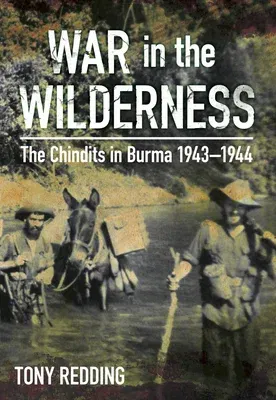War in the Wilderness is the most comprehensive account ever published
of the human aspects of the Chindit war in Burma. The word 'Chindit'
will always have a special resonance in military circles. Every Chindit
endured what is widely regarded as the toughest sustained Allied combat
experience of the Second World War. The Chindit expeditions behind
Japanese lines in occupied Burma 1943-1944 transformed the morale of
British forces after the crushing defeats of 1942. The Chindits provided
the springboard for the Allies' later offensives.The two expeditions
extended the boundaries of human endurance. The Chindits suffered slow
starvation and exposure to dysentery, malaria, typhus and a catalogue of
other diseases. They endured the intense mental strain of living and
fighting under the jungle canopy, with the ever-present threat of ambush
or simply 'bumping' the enemy. Every Chindit carried his kit and weapons
(equivalent to two heavy suitcases) in the tropical heat and humidity. A
disabling wound or sickness frequently meant a lonely death. Those who
could no longer march were often left behind with virtually no hope of
survival. Some severely wounded were shot or given a lethal dose of
morphia to ensure they would not be captured alive by the Japanese.Fifty
veterans of the Chindit expeditions kindly gave interviews for this
book. Many remarked on the self-reliance that sprang from living and
fighting as a Chindit. Whatever happened to them after their experiences
in Burma, they knew that nothing else would ever be as bad. There are
first-hand accounts of the bitter and costly battles and the final,
wasteful weeks, when men were forced to continue fighting long after
their health and strength had collapsed. War in the Wilderness continues
the story as the survivors returned to civilian life. They remained
Chindits for the rest of their days, members of a brotherhood forged in
extreme adversity.

